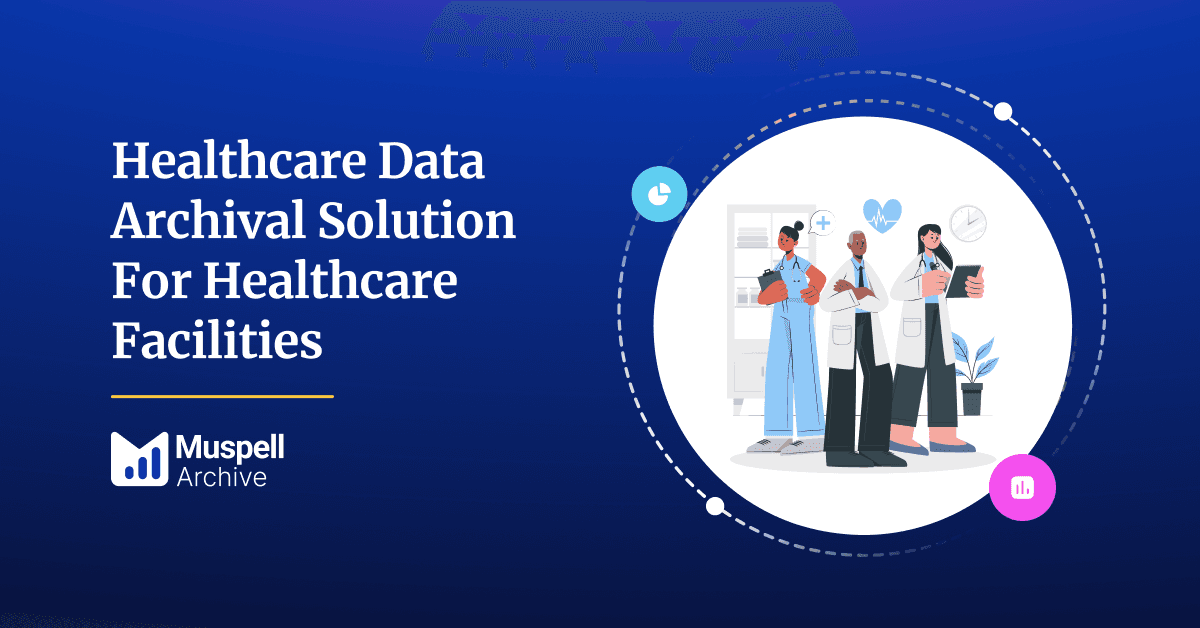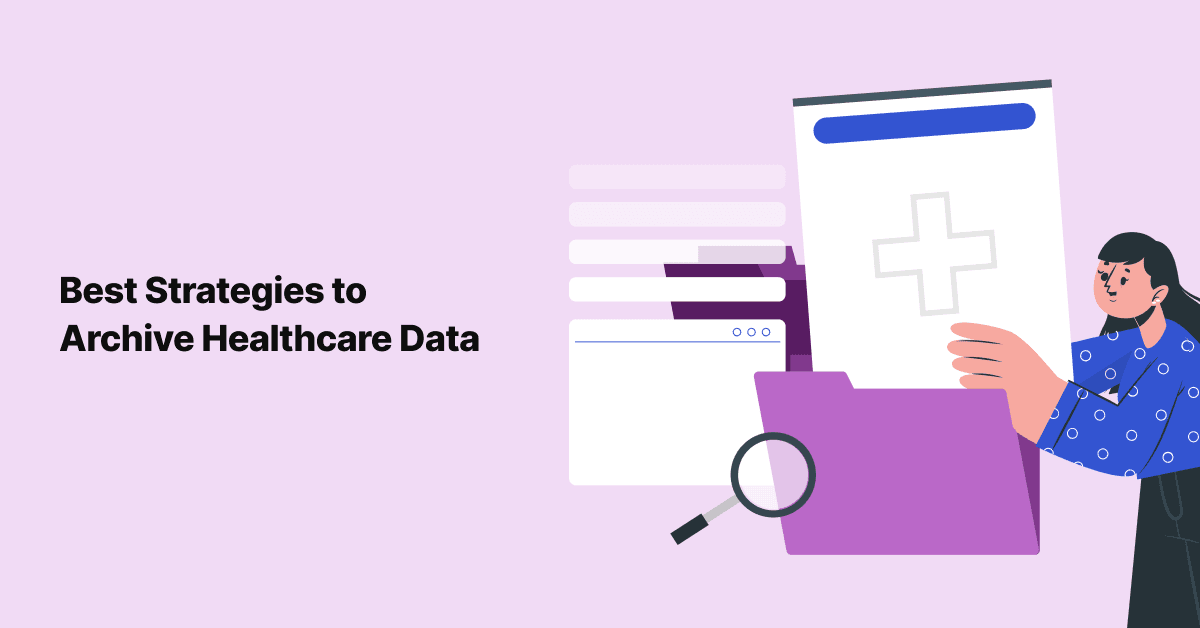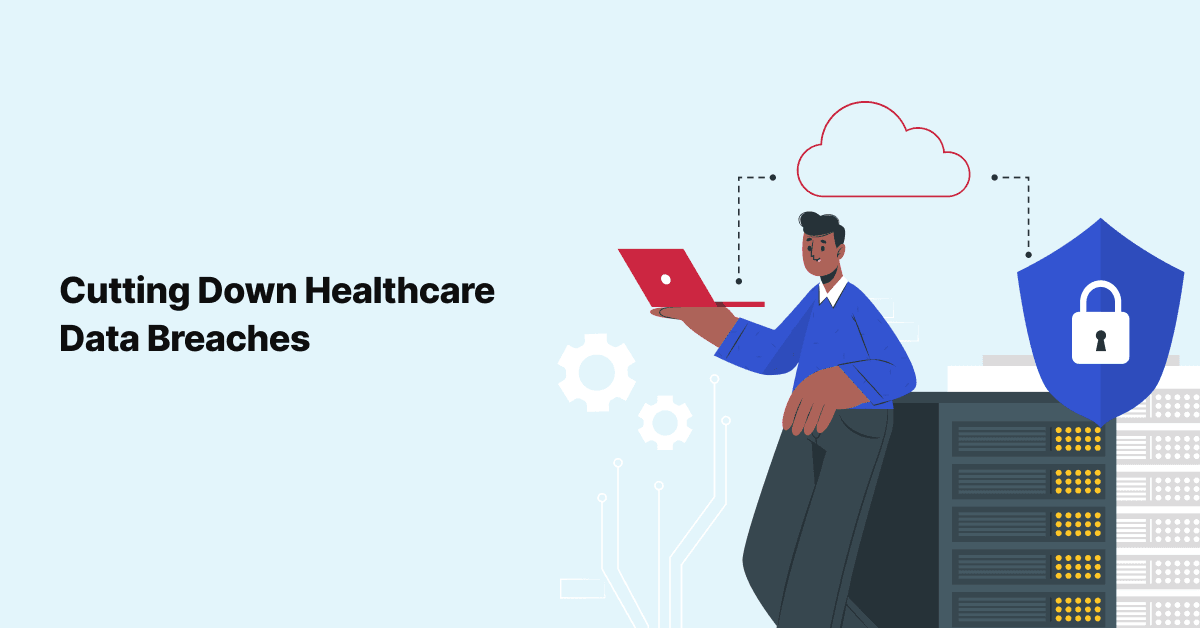
Healthcare Data Archiving Solutions - An Elegant Alternative to Legacy Healthcare Applications
The healthcare sector is evolving into a competitive arena where the accumulation of Protected Health …

An authorization for Release of Information form (ROI) allows your patients to specify which parts of their medical records they want to share with whom. Managing this release process involves many rigorous procedures, along with stringent timelines, sometimes only 30 calendar days–or even less!
So, what happens when you have to manage multiple outdated healthcare applications containing historical patient data? The majority of healthcare organizations decide to keep their legacy EHR applications primarily for the efficient handling of Release of Information (ROI) related to older data.They rely on legacy vendors to ensure compliance with statutory laws governing the ROI process.
There are numerous challenges associated with operating legacy EHR applications, such as high expenses and system vulnerabilities, which makes the decision to continue running legacy applications less than ideal. Due to this, consolidating all legacy data onto a unified platform can greatly improve continuity of care.
Healthcare data archiving solutions not only bring all your legacy data under one roof, but also gives you the control you need to comply with ROI requirements and guidelines. Additionally, they also help with:
Healthcare data archival solutions function as a fortified vault designed to store, secure and provide designated access to all your legacy PHI. These solutions also help manage 'Release of Information' (ROI) processes effectively through several key features:
Digital ROI Forms: Healthcare data archival solutions implement a digital system comprising electronic ROI forms and online access to these forms through a secure patient portal. These workflows make the ROI process simple, reducing the need to depend on legacy EHR applications to access historical patient health information.
Centralized Storage: Healthcare data archival solutions adopt a centralized system where all patient records are securely stored. This ensures that the solution complies with relevant healthcare regulations and standards.
Access Controls: These solutions implement strict access controls to ensure that only authorized personnel can handle ROI requests and access patient records. Role-based access control (RBAC) can be used to manage permissions effectively.
Automated Workflows: They set up automated workflows for processing ROI requests. When a request is received, the system routes it to the appropriate personnel for review and approval.
Audit Trails: Healthcare data archival solutions maintain detailed audit trails of all ROI activities. This includes tracking who accessed which records, when, and for what purpose. Audit logs are crucial for ensuring compliance and accountability.
Encryption and Security: They utilize encryption and other security measures to protect patient information during transmission and storage. The stored data is encrypted both at rest and in transit.
Compliance Monitoring: They stay updated with evolving regulatory requirements and implement necessary changes.
Integration with EHR Systems: They integrate seamlessly with Electronic Health Record (EHR) systems to streamline the ROI process. This integration allows for faster retrieval and processing of patient records.
Muspell Archive provides a flexible, asynchronous ROI procedure in compliance with the ONC’s 21st Century Cures Act. The healthcare data archiving solution’s innovative approach ensures enhanced access to health information, and empowers patients with the autonomy to designate recipients, delivery preferences, and sharing conditions.
Seamless Access to Multiple Source Systems
Muspell Archive offers seamless integration with diverse healthcare source systems, providing healthcare organizations with unified access to critical patient data. This resulting interoperability ensures that healthcare professionals can swiftly access comprehensive patient records without navigating multiple disjointed systems, thereby optimizing operational efficiency and enhancing patient care.
ROI Data Export Access
A cornerstone feature of Muspell Archive is its robust capability to facilitate ROI processes. By empowering users with efficient data export functionalities, Muspell Archive enables healthcare providers to respond promptly to ROI requests. This streamlined approach ensures timely delivery of accurate patient information, while adhering to stringent privacy and security standards.
Intuitive Workflows
Navigating the intricacies of healthcare data management can be daunting. Muspell Archive mitigates these challenges by offering intuitive workflows specifically tailored for ROI processes. With the use of its user-friendly interfaces and guided steps, healthcare professionals can efficiently manage and process ROI requests, reducing administrative burden and improving overall productivity.
Granularity in Information Selection
Muspell Archive empowers users with granular control over information selection, allowing precise filtering based on specific criteria such as date range, patient name, procedure, and codes. This level of granularity ensures that healthcare professionals can retrieve and export only the minimum necessary, enhancing data accuracy and compliance with regulatory requirements.
Muspell Archive's innovative approach to ROI heralds a new era of patient data access and empowerment. Its asynchronous ROI design provides comprehensive tools for data management, auditability, and accountability. In addition, Muspell Archive equips healthcare organizations with control over legacy health data through features such as individual data item exports, encounter-based extractions, and detailed audit trails.
Talk to our experts to explore Muspell Archive and learn more!
Join over 3,200 subscribers and keep up-to-date with the latest innovations & best practices in Healthcare IT.

The healthcare sector is evolving into a competitive arena where the accumulation of Protected Health …

Every year huge amounts of data are created by healthcare organizations in the form of lab results, patient …

Digitization has revolutionized our every day, and while it is true that it has improved efficiency, it is …